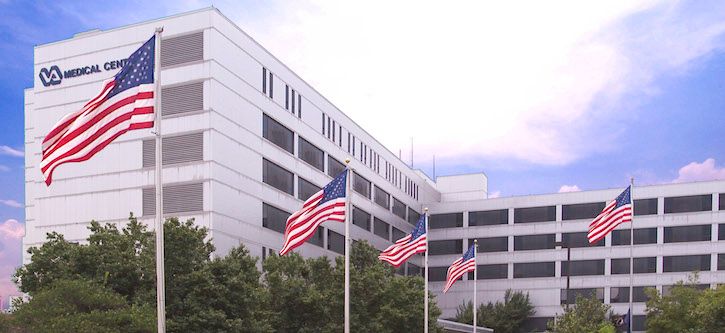Despite Wide Variation, VA Hospitals Outperform Other Providers
On a number of patient safety and quality metrics, the agency's health centers outperformed commercial, Medicare, and Medicaid HMOs.

A VA hospital in Augusta, Georgia. Image is in the public domain.
The Department of Veterans’ Affairs (VA) and the huge health system it controls have spent plenty of time in the news lately. Much of the happenings are unfortunate: An unsettled leadership group, rampant underfunding, a still-in-limbo electronic health records (EHR) contract.
But a new study echoes what since-fired VA Secretary David Shulkin, MD, said at a population health meeting recently: The VA is capable of providing high-quality healthcare.
The study, conducted by the nonprofit RAND corporation, identified 3 comparable non-VA hospitals for each of the organization’s 135 locations around the country. Using 30-day mortality and readmission measures and a host of established quality metrics and patient surveys. The data used in the study came from 2013 and 2014.
The VA hospitals performed “the same or significantly better” than non-VA hospitals on all 6 inpatient safety measures, all 3 mortality measures, and 12 other quality measures examined in the study. Overall, they outperformed Medicare HMOs on 14 out of 16 metrics, and did better than Medicaid and commercial HMOs across the board.
"Our analysis found that the VA health care system generally provides care that is higher in quality than what is offered elsewhere in communities across the nation," lead author Rebecca Anhang Price said, noting that the findings were “consistent with previous studies.”
When it came to readmissions, however, they performed significantly worse. The study also found that care quality varied significantly between VA locations. Between the best and worst-performing VA hospitals, for example, there was a 50 percentage point-difference in the rate of beta blocker treatment 6 months after discharge for a heart attack.
That variation, according to co-author Carrie Farmer, shows that “veterans in some areas are not receiving the same high-quality care that other VA facilities are able to provide.” The study did not look at care access issues, like the time it takes for a veteran to get an appointment at a VA facility. Those are often a point of contention for the agency’s many critics.
Speaking in Philadelphia in March, former Secretary Shulkin noted that the agency now posts all of its facility wait times online. On average, he added, 96% of followup appointments occur within 30 days of a patient referral. According to a report released a week before that speech, however, VA may have incorrectly reported wait-times for veterans seeking first-time care.
The new study, “Comparing Quality of Care in Veterans Affairs and Non-Veterans Affairs Settings,” was published this week in Journal of General Internal Medicine.
Related Coverage
Shulkin: A Transparent VA Will Lead the Way for the Rest of Healthcare
Who Would Replace David Shulkin at the VA?
Congress Allots $1.2B for New VA EHR System
Healthy Bottom Line: The Trouble With SDOH Programs and the Secret to Improving Them
September 28th 2021Several problems exist with current programs that address social determinants of health (SDOH); however, a new social model aims to combat these issues and improve the programs’ effectiveness.